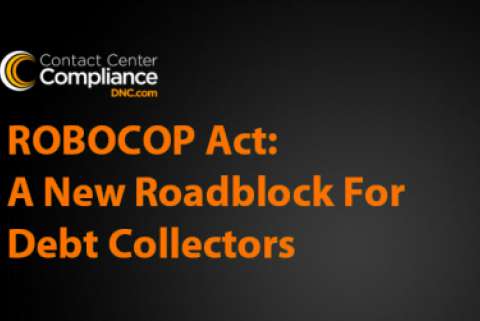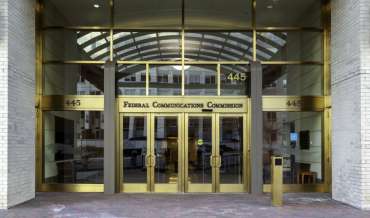On April 18th six U.S. Senators introduced the ROBOCOP Act which, if passed, will require phone companies to offer their customers free robocall blocking technology. The bill is part of a wide range of efforts by Congress and regulators to protect consumers from overseas scammers. Unfortunately, it could also become a major headache for debt collectors that prevents them from contacting the debtor.
What is the ROBOCOP Act?
ROBOCOP is an acronym that stands for Repeated Objectionable Bothering of Consumers on Phone. Congress takes the position that the National Do Not Call Registry is no longer effective in the fight against illegal robocallers. Evidence of that is that over $350 million is lost to phone scams each year.
“The ROBOCOP Act restores power to consumers by requiring phone companies to provide effective technology that blocks unwanted calls at no cost to the consumer.” – Senator Richard Blumenthal
The new legislation is intended to provide consumers with control over the calls they wish to receive and those they do not. Of course, as is most times the case, the new legislation inevitably creates new problems for consumers and legitimate robocallers to complicate their lives.
Requirements of the ROBOCOP Act:
- Caller ID Verification. Directs the Federal Communications Commission (FCC) to require telecom companies to verify that Caller ID is accurate. An EXCEPTION is provided for consumers with legitimate need for altered Caller ID, such as medical offices and domestic violence shelters.
- Free Robocall Blocking. Directs the FCC to require telecom companies to offer consumers optional free robocall-blocking technology. An EXCEPTION is provided for public safety entities and calls that the consumer consents to receive (e.g., school closings).
- National Unblocking System. Authorizes the FCC to create a nationwide unblocking system that will ensure consumers are in control of the calls and text messages they receive.
- Legal Action. Gives consumers a private right of legal action against telecommunications companies that violate this statute.
- Public Reporting. Requires the FCC, in consultation with the Federal Trade Commission (FTC), to make a public report on whether the new rules have reduced unwanted calls.
The ROBOCOP Act was introduced by Richard Blumenthal (D-CT), Edward J. Markey (D-MA), Ron Wyden (D-OR), Charles E. Schumer (D-NY), Tammy Baldwin (D-WI), and Jeff Merkley (D-OR). Read the complete ROBOCOP Act.
Why The ROBOCOP Act Doesn’t Solve The Problem
The introduction of the ROBOCOP Act demonstrates that regulators and our elected officials do not have a single solution that solves the complex problem of illegal robocalls. What we will eventually end up with is a collective hodgepodge of well-intended potential solutions that fix one problem while creating new problems. The end result is confusion from both consumers and robocallers. The bad news for legitimate robocallers is in confronting the reality that where there’s regulatory confusion, lawsuits are sure to follow.
Debt Collection is the most obvious recipients of problems that would result from the ROBOCOP Act. The purpose of the act is to provide consumers with a method for only accepting calls they wish to receive. Consumers are typically unreceptive to calls regarding the collection of debt.
Unless there is an eventual exception added for debt collectors, it is likely that unwanted collection calls will never reach the intended party. Complicating the issue for consumers is that the call may be their only notification of the debt owed. Not receiving the collections call increases the likelihood of a negative item appearing on their credit report for the outstanding debt. Let’s hope that Congress addresses this problem before moving forward with the new legislation. Are you confident that your call center is TCPA and DNC Compliant?





